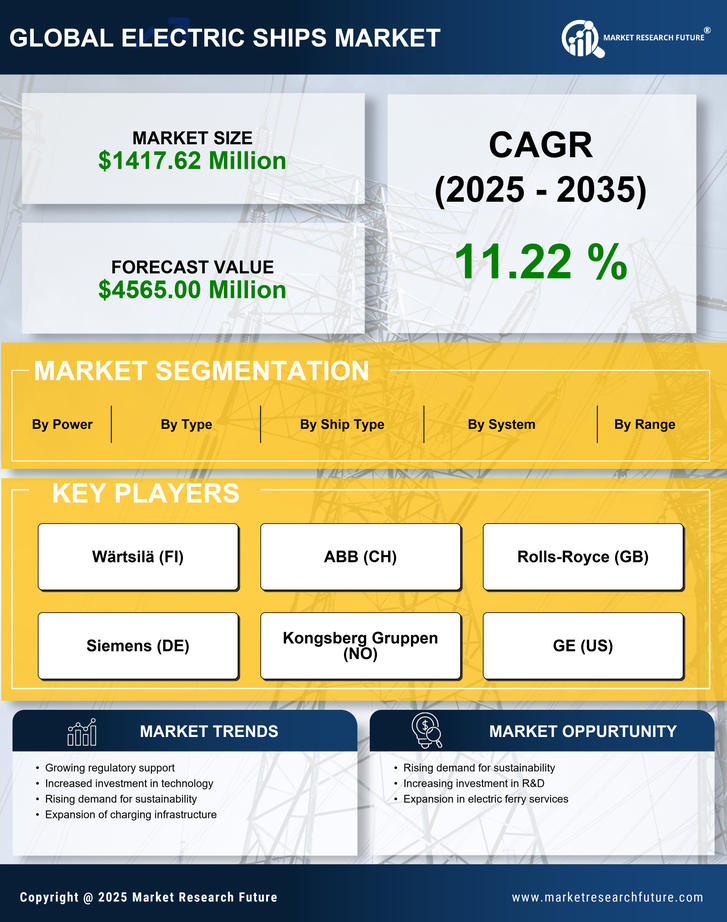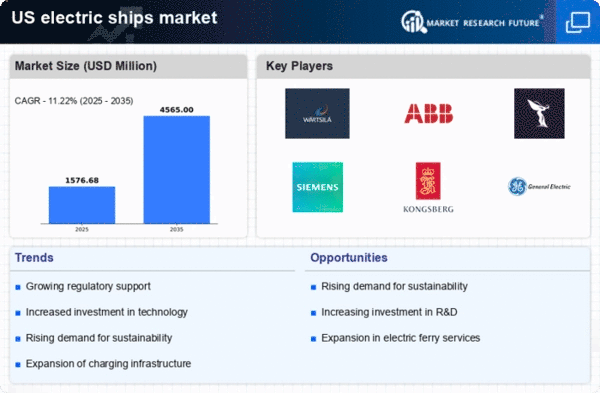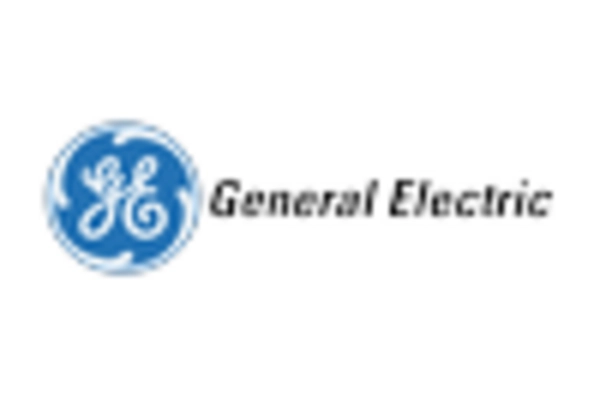Rising Fuel Costs
The volatility of fuel prices is a significant driver for the electric ships market. As traditional fuel costs fluctuate, shipping companies are increasingly seeking alternatives that offer more stable and predictable operating expenses. Electric vessels, which rely on electricity rather than fossil fuels, present a compelling solution in this context. The electric ships market is likely to gain traction as companies recognize the long-term cost savings associated with electric propulsion systems. Moreover, the potential for utilizing renewable energy sources to power electric ships further enhances their appeal. This shift towards electric vessels may be accelerated by the desire to mitigate the financial risks associated with rising fuel prices.
Growing Environmental Concerns
The increasing awareness of environmental issues is driving the electric ships market. Stakeholders are becoming more conscious of the ecological impact of traditional shipping methods, which often rely on fossil fuels. As a result, there is a notable shift towards sustainable alternatives. The electric ships market is positioned to benefit from this trend, as electric vessels produce significantly lower emissions compared to their diesel counterparts. In fact, studies indicate that electric ships can reduce greenhouse gas emissions by up to 90%. This growing environmental consciousness among consumers and businesses alike is likely to propel investments in electric ships, as companies seek to enhance their sustainability profiles and comply with stricter environmental regulations.
Government Incentives and Funding
Government initiatives aimed at promoting clean energy solutions are significantly impacting the electric ships market. Various federal and state programs are providing financial incentives for companies to invest in electric vessels. These incentives may include grants, tax credits, and subsidies that lower the initial investment costs associated with electric ships. For example, the U.S. Department of Transportation has allocated substantial funding to support the development of electric maritime technologies. Such financial backing is likely to encourage more companies to transition to electric shipping, thereby expanding the market. The electric ships market is poised for growth as these government programs continue to evolve and support the adoption of cleaner technologies.
Advancements in Battery Technology
Innovations in battery technology are playing a crucial role in the electric ships market. The development of high-capacity, lightweight batteries is enabling longer voyages and greater operational efficiency for electric vessels. Recent advancements have led to batteries that can store more energy while reducing weight, which is essential for maritime applications. For instance, lithium-ion batteries are becoming increasingly popular due to their high energy density and longevity. The electric ships market is expected to see a surge in demand as these technological improvements allow for more practical and economically viable electric shipping solutions. Furthermore, the potential for battery recycling and second-life applications may enhance the sustainability of the electric ships market.
Increasing Demand for Sustainable Shipping Solutions
The demand for sustainable shipping solutions is on the rise, influencing the electric ships market. As consumers and businesses prioritize sustainability, there is a growing expectation for shipping companies to adopt greener practices. Electric ships, which offer a cleaner alternative to conventional vessels, are becoming increasingly attractive to stakeholders. The electric ships market is likely to expand as companies respond to this demand by investing in electric vessels. Additionally, partnerships between shipping companies and technology providers are emerging to develop innovative solutions that enhance sustainability. This trend indicates a shift in the industry towards more environmentally friendly practices, further solidifying the role of electric ships in the future of maritime transport.

















